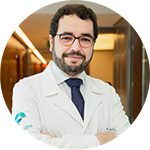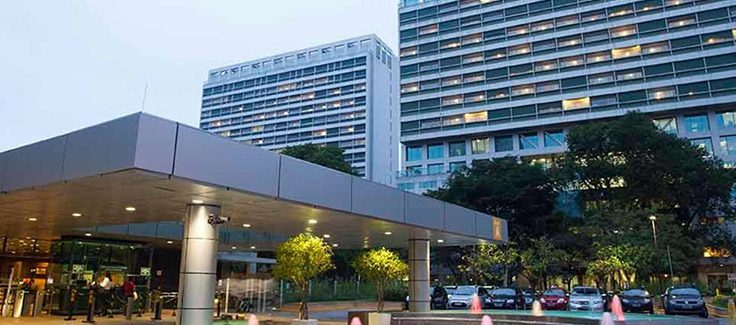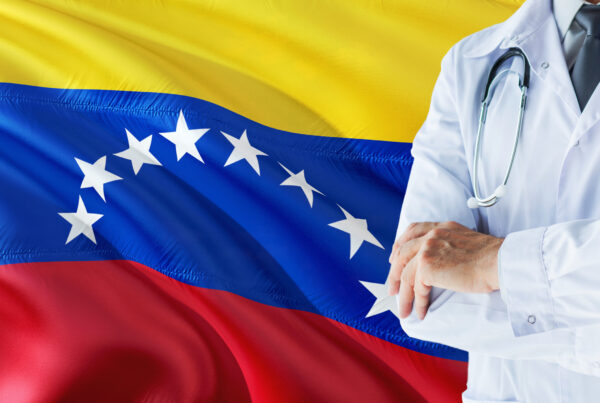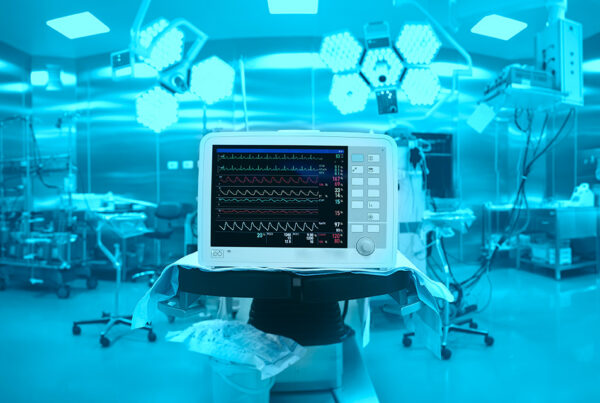By Alanna Della Nina
 One of the largest and best equipped hospitals in Brazil, Hospital Alemão Oswaldo Cruz is known for offering complex treatments and its differentiated healthcare model, which places patients at the center of their healthcare. In the interview below, Dr. Antonio da Silva Bastos Neto, Executive Medical Director, discusses new equipment, research and innovation, patient care, the challenges facing the healthcare sector, new initiatives and what to expect in the future.
One of the largest and best equipped hospitals in Brazil, Hospital Alemão Oswaldo Cruz is known for offering complex treatments and its differentiated healthcare model, which places patients at the center of their healthcare. In the interview below, Dr. Antonio da Silva Bastos Neto, Executive Medical Director, discusses new equipment, research and innovation, patient care, the challenges facing the healthcare sector, new initiatives and what to expect in the future.
What are the main medical equipment models that the institution buys or substitutes most often?
Dr. Antonio da Silva Bastos Neto: Hospital Alemão Oswaldo Cruz is a quaternary hospital that provides high-complexity healthcare, including specialized transplant care. As we perform all transplants here in the hospital, the equipment and devices that we purchase most often are those used for diagnosis — MRIs, CT scans, and ultrasound. Along with this diagnostic equipment, diagnostic interventions are becoming more and more necessary. As we improve diagnostic capabilities, we can make an earlier diagnosis and thus also make earlier imaging-guided interventions.
Are there any particular healthcare devices with standout technology or innovation that the hospital has acquired recently or plans to acquire?
Dr. Antonio: Recently, I think it was about three years ago, we acquired a device called Halcyon. It was the first one in Latin America and its system delivers radiotherapy with pinpoint precision, reducing the number of sessions and thus patients’ exposure to radiation by at least a quarter. This results in a better patient experience, more assertive treatment and increased productivity for the institution.
What are the main factors that lead a benchmark institution such as Hospital Alemão Oswaldo Cruz to acquire new equipment?
Dr. Antonio: I think that the most basic thing — but which is a commitment that the institution has made to its patients — is to keep the equipment in perfect working condition. To this end, with our own clinical engineering structure and maintenance carried out by our own team, we have a clear idea of the time devices become obsolete. The second point is when we see that a certain technology will improve patients’ experience, providing more precise healthcare.
What are the healthcare challenges currently faced by Hospital Alemão Oswaldo Cruz?
Dr. Antonio: As a result of the pandemic, the current situation is most unusual. The volume of claims received by payment sources is very high. It’s at an all-time high. And in the healthcare market, you need to be more and more efficient. You need to have the lowest costs and the ability to generate funds for investments in such a way that you maintain your vocation as a hospital of excellence. Therefore, the challenge in this market is to increasingly consolidate as a quality institution so that patients can be convinced that they are in a hospital that provides care. Another challenge is that, as technology keeps on arriving, you have to be clear about the benefit that it will bring and not simply buy something because you want to be the first to have it. Every investment needs to generate value. This is a commitment which we have to treat very carefully, so that the hospital maintains its quality and its ability to invest in technologies that add value. So, when I say that the institution’s value lies in innovation, it does not mean innovation at any price. This is why the hospital administration needs to be permanently focused on generating value, because of its responsibility for caring for people.
Does the hospital have any plans to expand, upgrade or open any new units?
Dr. Antonio: The need to upgrade is an ongoing commitment. As time goes by, structures need to be adapted, expanded. We currently operate with two master plans: one at the Paulista Unit and one for technology, with the aim of strengthening our data security and improving the quality of the technology we use at our hospital. We are accredited by the World Health Organization as institutions capable of this management and of expanding this knowledge, this experience, so as to improve the healthcare scenario in Brazil. This commitment is thus part of our strategy, growth is a consequence — a consequence of the results, of our ambition. On top of this, we have drawn up a strategic plan for the next five years which, in fact, foresees the units’ growth. We also invest heavily in research and education, training doctors. We understand that research strengthens our reputation. Technology can be bought and buildings can be built, but knowledge is something that involves culture and the clinical staff. It involves a structure underpinned by our pillars: innovation, research and education. Therefore, we have also invested in this dimension in order for the hospital to fulfill its social role and contribute by generating knowledge.
About Hospital Alemão Oswaldo Cruz
Founded in 1897, Hospital Alemão Oswaldo Cruz is one of the largest hospital centers in Latin America. It has 10 specialty centers, each with multidisciplinary teams with specific training and expertise in the main health fields.



